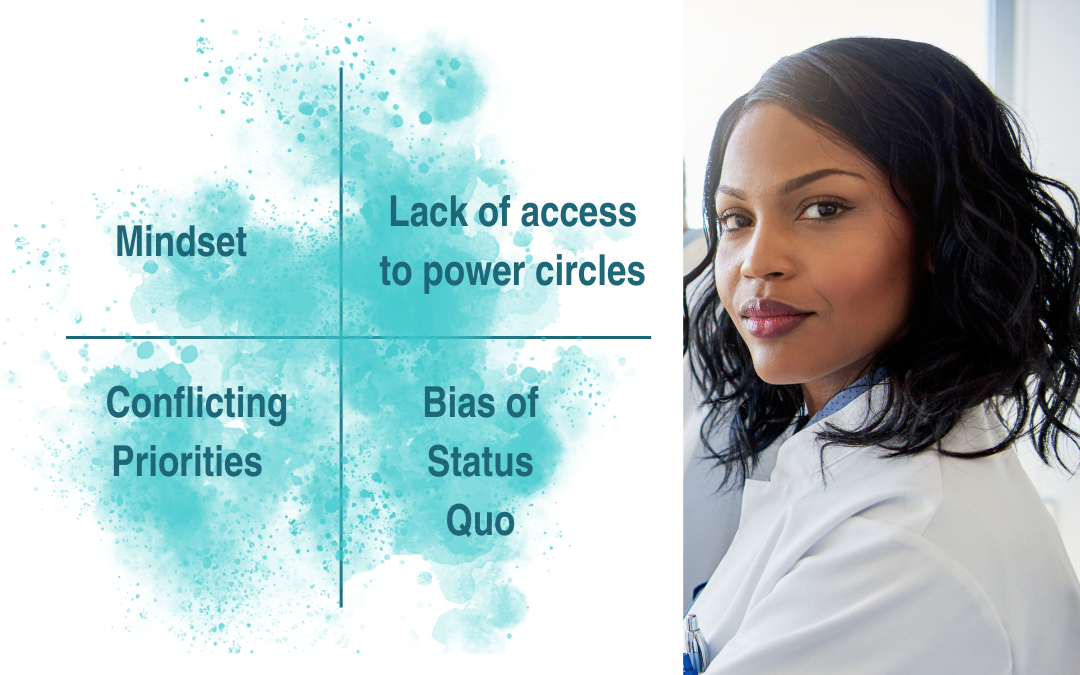In this blog post, we will explore the barriers that women face in healthcare leadership and discuss strategies to overcome them. Through extensive research and conversations with women physicians, leaders, and healthcare professionals, four main barriers have been identified: mindset, conflicting priorities, status quo bias, and limited access to power circles. Recognizing and addressing these obstacles is crucial if women are to have a greater influence and lasting impact in healthcare.
Mindset:
One of the main challenges that women encounter is a mindset that holds them back. Internalized gender biases and stereotypes may lead to self-doubt and a lack of confidence in their abilities. If your mindset is a challenge, you often worry that you’re not prepared to handle new situations. This causes you to second guess yourself and you often feel stuck, preventing you from having the impact you really want to have.
To overcome this, women must challenge these biases, build self-confidence, and foster a supportive and inclusive mindset.
Conflicting Priorities:
Juggling work and personal obligations can make it difficult to prioritize career advancement. Women often face additional stressors because of societal expectations around caregiving and family responsibilities. As a result, you may feel guilty when you’re at home that you’re not working, and guilty at work that you’re not at home, making it hard to feel like you’re succeeding anywhere.
Managing expectations, setting boundaries, and prioritizing self-care can help women navigate this challenge.
Status Quo Bias:
The status quo perpetuates biases and stereotypes that hinder women’s progress. Unconscious biases and resistance to change create barriers for women in leadership roles. You may find yourself over-preparing when you share your perspective because you want to fit in and at the same time, you want to innovate. Challenging the status quo involves shifting mindset, advocating for oneself, and embracing new ideas and perspectives.
Limited Access to Power Circles:
Structural and cultural barriers within healthcare organizations limit women’s access to power circles. Lack of representation and traditional leadership norms that favor masculine styles further contribute to exclusion. As a result, you frequently find yourself watching from the sidelines wondering how to share your ideas, instead of taking part in important conversations. Demonstrating expertise, seeking leadership opportunities, collaborating with other women, and advocating for change can help break into power circles.
If you want to bring more of your unique perspective to the challenges healthcare faces, you will want to recognize your barriers and overcome them. Moving from stuck to motivated will bring you more leadership opportunities and when women lead in healthcare, everyone wins! To assess your leadership barriers, take my 3-minute Leadership Barrier survey and receive immediate, personalized feedback and tips to handle your own challenges.

